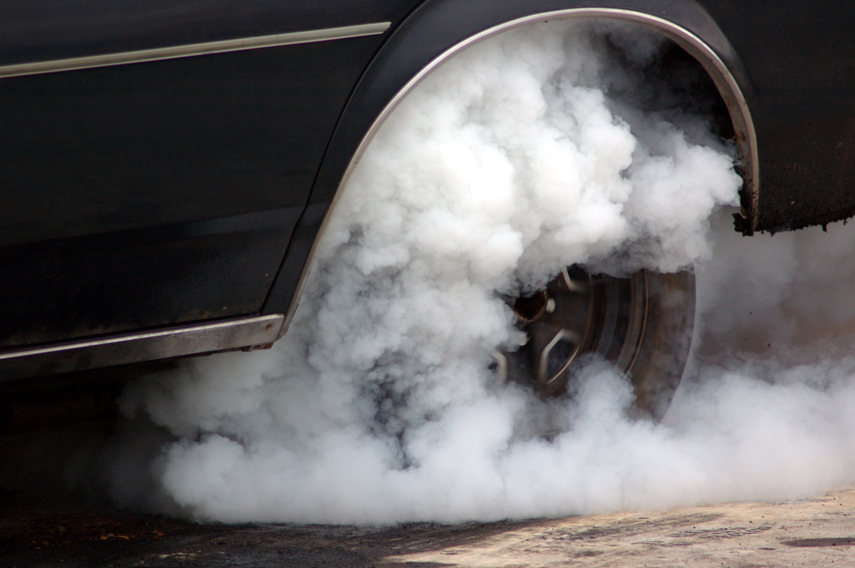Car insurance is one of those products that we don’t like to spend money on, which is why some people might be tempted to be less than truthful with an insurance broker as they try to get the lowest price possible for coverage.
According to Grant Clarke, VP of National Personal Insurance at BrokerLink, that’s a really bad idea. “When you purchase car insurance in Canada, it’s a contract with the insurance company, and if either party fails to hold up their end of the bargain, the contract can be broken,” he explains.
Clarke points out that insurance companies don’t typically cancel a policy without a good reason. However, if they find out that you lied about something, or that you weren’t forthcoming with new information that they need in order to assess risk, that’s definitely reason enough for them to cancel your policy.
“We operate in this industry on the principle of utmost good faith, which requires all parties of the contract to act honestly, and to not mislead one another,” he adds. “We can’t have either party withholding critical information.”
Missed Payments
Clarke offers a few examples of why your insurance coverage might be cancelled. The first is a missed payment. “This would be the most common reason we see insurance policies cancelled,” he says.
If you miss a payment, in most cases your insurance company will send out a notice and give you a timeframe to pay. If you don’t, they have the right to cancel your insurance coverage, plus you’ll still have to catch up with the payment you missed before you can buy coverage from another insurer.
Unfortunately, that’s not the worst of it. If they cancel your insurance coverage, the fact that you didn’t make your monthly payment goes on your record, which means that the next insurance company you buy coverage from may not allow you to pay your premiums with monthly instalments. Instead, they may demand a lump sum payment for your annual coverage in advance.
Misrepresentation and Lies

If you lie to your insurance company and they find out about it, they may cancel your policy. “When a policyholder withholds information or misrepresents information about their vehicle, their profile, their experience, medical conditions, those sorts of things, the insurance company could cancel that policy,” Clarke explains.
Some of the more typical omissions, according to Clarke, include failing to mention who is actually going to be driving the vehicle, where the vehicle will be stored, or how the vehicle will be used.
For example, if you start a part-time job as an Uber driver or as a delivery driver with DoorDash, that’s something you need to tell your insurance company about. The fact that your vehicle will now be used in these new ways translates into what the insurance industry calls “a material change in risk,” which means your insurance rates will likely have to change.
Suspended Driver’s Licence
If you ever find yourself in a position where your driver’s licence has been suspended or revoked, then your insurance company has the right to stop covering you. “The condition of the policy is that you need to be licenced to be an insured operator of the vehicle,” Clarke adds.
Too Many Tickets
While parking tickets won’t impact your insurance coverage, if you rack up tickets from moving violations, you may find yourself without insurance. “Too many tickets can lead to a licence suspension, and also create challenges when applying for a policy,” Clarke explains, “because those tickets can tell a story about unsafe driving habits.”
Even if you don’t lose your insurance coverage, Clarke warns that an excessive number of tickets could push you into a different insurance bracket. In other words, if you’re deemed a “high-risk driver,” you may have to pay a lot more for insurance coverage.
Too Many Claims

This could be a red flag for insurance companies. If you have too many claims, they might see you as a high-risk driver, which could result in the cancellation of your policy or a significant boost in the price you’ll have to pay to keep your insurance.
“It indicates that you’ve been involved in an above-average number of incidents,” Clarke adds. “And if all your claims are the result of the same type of incident, this further cements the idea that you’re a risky driver, which may send you into a higher-risk insurance market.”
Fraud and Illegal Acts
Outright fraud is a sure way to get your policy cancelled. “If a policyholder were to file a fraudulent claim, or be dishonest about the circumstances of a claim, that could be grounds to terminate the contract,” Clarke explains. “As I mentioned, this is a relationship based on good faith, and we need to be transparent with one another for it to work.”
Failing to Update Personal Information
Forgetting to tell your insurance company something as simple as the fact that you moved to a new address may not seem like a big deal, but according to Clarke, the customer has an obligation under the insurance contract to inform their broker, and not meeting this obligation could result in cancellation of their insurance coverage.
“It’s one of those obligations, under the policy, where the customer does need to keep their insurance partner up to date on where they are and how to reach them,” Clarke adds.
Vehicle Modifications

While a new set of rims, an upgraded exhaust, or a lowered suspension may make your car look and perform better, these modifications need to be disclosed, or they could lead to the cancellation of your insurance policy.
“Modifying a vehicle for racing or to increase performance is something we definitely need to talk about and make sure the modifications are well documented and understood,” Clarke adds.
Change in Health Status
If your doctor puts you on new medication or there’s a serious change to your health status, your insurance company needs to know, Clarke says. “If it’s medically unsafe for you to drive, or if there’s a deterioration in your vision or a loss of vision, or you’re suffering from seizures or something like that, this information is material to the contract, and we need to know,” he says.
The bottom line is simple: Be honest when buying insurance, and keep your insurer updated when your circumstances change. Your honesty may result in higher premiums, but at least that’s better than the alternative – no insurance at all.

